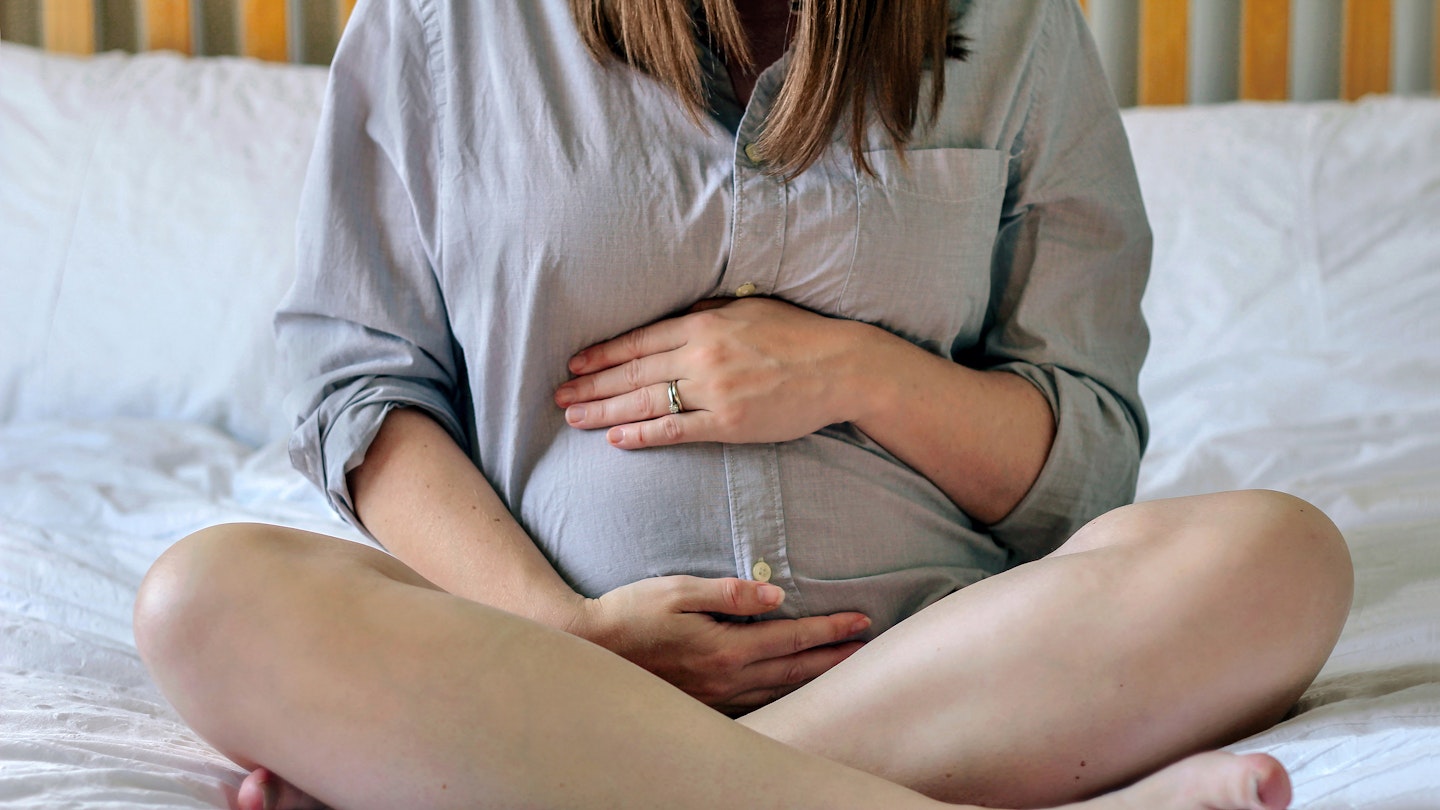An expert on a BBC radio show has claimed that women are having difficulty giving birth because they have ‘increased fat tissue in the birth canal’ or fat vaginas, if you will. So that’s something new to worry about.
The conversation took place yesterday during the Mornings, With Jackie Brambles show, on BBC Radio Scotland. The idea of the show was to ask why the UK has seen a marked decrease in the number of women who are giving birth ‘naturally’ (aka without an induction or a caesarean section).
Asked to explain why older and heavier mothers have higher levels of intervention, Dr Marco Gaudoin told listeners: ‘Increasing age is associated with an increased risk of during pregnancy. Every baby is precious, but if you are 41 or 40 years old, it’s likely to be your only baby, so the obstetrician is more likely to say "we’ll bail out early".
‘With obesity you’ve got increased fat tissue in the birth canal, which makes the birth canal that much narrower, which makes it harder for the baby to squeeze through the birth canal. So you are more likely to end up with what is called an "obstructed labour".'
However, Milli Hill, author of How To Give Birth Like A Feminist, says that the concept of a ‘fat vagina’ requires some questioning, telling Grazia: ‘This is yet another example of how the words of a doctor who has been positioned by the media as the 'expert' in the conversation can be taken as fact and not even questioned. In reality there is absolutely ZERO evidence that I am aware of to support the notion that women's vaginas can be 'fat', or that, even if they are, that this can obstruct the progress of a baby.
‘Instead it seems to be an example of the woman-blaming culture that can unfortunately be found in the medical profession . Rather than asking, what could we be doing differently to facilitate easier births for women, too often the explanation given for difficult or traumatic births is left at the door of women. We are too old, we are too fat and our expectations are too high.
‘It's also worth noting that the doctor who made this claim is actually a fertility doctor, so he is not an obstetrician, or a midwife, and doesn't, as far as I know, have anything to do with women in labour. Too often we lump all doctors together under one big umbrella of "expert" and we need to accept that they don't all have expertise in all areas. Any good doctor would admit that there are gaps in their knowledge or experience rather than trying to pretend they "know everything".'
It’s been well documented that pregnancy while plus-size is not always an easy ride. Earlier this year journalist and author Amy Jones detailed all the ways in which her BMI affected her pregnancy, or rather how she was treated during pregnancy, describing how she was encouraged to worry about elevated risk factors which were still tiny, and denied the use of the birthing centre (a less medicalised birthing facility).
So, what can women who weigh more do to ensure that their pregnancy and birth is still a positive experience? Hill says: ‘Women are free to question any advice they are given during pregnancy. A good starting point is, “Can you tell me the evidence upon which that is based, please?” You can also ask for links to the specific evidence that their advice is based on.'
Generally speaking, women are not permitted to have a water birth or give birth in a midwife-led unit if they have a BMI over 30. However, Hill says that's not a hard a fast rule.
‘If you have a higher BMI, it's worth pushing for the care that you feel is best for you. For example, if you feel safer giving birth in a midwife-led unit, but are being told that you are "not allowed" to give birth there because of your BMI, try and ask more questions about this, or try another MLU in your area. If you speak to professionals and explain your wishes, they may be able to accommodate you.
‘We know that all women, regardless of BMI, birth better with continuous support from a professional they know and trust, with freedom of movement –being off the bed! – and with a welcoming, dimly lit, calm and undisturbed environment.
‘Most of all, women need to understand that if their birth doesn’t go to plan, it is most likely a failure of the care provider, not a fault in their own body or god forbid their "fat vagina"!’
It should go without saying that women of all ages and weights deserve to be treated with dignity and respect during their pregnancy and birth. Unfortunately, however, that clearly does need to be said, because there are doctors who seem to think it’s OK to talk about fat vaginas making birth more complicated when there’s a screaming lack of peer-reviewed evidence to support such a claim.
Milli Hill’s book How To Give Birth Like A Feminist gives guidance on how to have the birth that you want. You can buy it here.
READ MORE: Why is it so hard to buy decent plus size maternity clothes?
